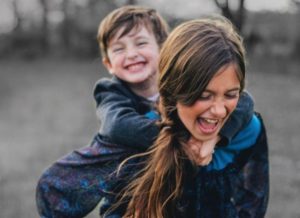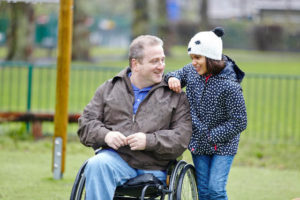
Thinking about becoming a foster carer? Read this step-by-step guide to understand the process of becoming a foster carer in Wales.
Who can be a foster carer? Are there any age limits?
Any adult in Wales can be a foster carer, there are no age limits to fostering. But, you need to be mature enough to take on the responsibility to look after other people’s children, and still have the energy to keep up with them!
Foster Carers or Foster Parents, as they are sometimes called, may be single people or couples. Your ability to foster children is all about your skills and abilities – not things like gender, or sexuality.
What do you need to have be a foster carer?
You need a spare bedroom for a foster child, who must have their own rooms – unless they share with their own siblings. Patience, empathy & resilience are also essential.
Some foster carers may live in rented housing, some own their own home. The main thing is for you to be able to offer a stable environment to a child.
The Fostering Process in Wales

Step 1 – Get in touch with us
Lots of people have doubts and questions about fostering children and young people.
The best way to answer your fostering questions is to contact our office in Cardiff, where one of the specialist fostering social work team will be happy to talk things through.
If you’re still interested in fostering after the initial call, we will then visit you at home.
Step 2 – Apply to be a foster carer
Once you apply to become a foster carer, we’ll set up a fostering training course in person at our Cardiff office, and/or online.
You don’t need any experience to start fostering in Wales but many people have had their own children or work in health, care or education setting.
Step 3 – The Fostering Assessment
Our social work team will then write a fostering assessment report with you, about you and your household. We want to understand you as much as we can, to be able to offer you the training and support you need to be the best foster carer you can be.
We need to work out what sort of foster children you can help most, and which children would match best to your family.
DBS Check
There are a number of checks that we organise including with the Disclosure and Barring Service (DBS), which is basically a police check to make sure children will be safe.
There are a small number of very serious convictions which prohibit someone from fostering. Some people may have minor historic convictions, which we can discuss in more detail, as they may not be a problem. During the assessment, we need people to be honest and upfront with us.
Medical Check
There is also a medical check, where we’ll ask your GP to confirm that you’re fit to be a foster carer. If you have any concerns about this, you may wish to talk to your GP in advance. We’re not looking for athletes, but need to be sure you’re healthy to foster.
Step 4 – The Fostering Panel
The fostering assessment report and various fostering checks, including a DBS, then go to an independent fostering panel who makes recommendations about the best age group of foster children, and the type of child or young person you can foster.
The Agency Decision Maker (ADM) makes a final decision based on Panel recommendation.
Step 5 – Ready to start fostering
We receive referrals from lots of different local authority fostering services. We match your skills and abilities with the needs of different children in care.
When we think we have a good match we share the information with you, and your information with the local authority. You can say no if you want to.
Once a child, or children come to live with you, one of our specialist fostering social workers will be your main point of contact to offer expert fostering advice and support. The rest of the team will also get to know you – so there is always someone you know available 24 hours a day, just in case you need help or advise.
We want foster children to have as normal a life as possible – we try to keep them in the same local schools so they are still able to see their friends. Even if they’re not living with their birth families they often have contact with their families, which is assessed to make sure it’s safe. It may be supervised if necessary.
Day to day foster carers should treat foster children very much as part of their family. Children need a sense of belonging.
There are some fostering rules which we go through, for example, foster carers may not use corporal punishment.

How long does it take to start fostering in Wales?
It can take between three to six months to become a foster carer in Wales. This seems a long time, but there are lots of checks to be done – and the fostering report is a large document. If you’ve previously fostered, it’s usually a quicker process.
Some existing foster carers can also transfer to us from local authority fostering or other fostering agencies. Ask about our Fast Track Fostering Transfer Scheme.
What’s the difference between adoption and fostering?
With adoption, you become the legal parent of the child for good.
Fostering is intended to look after children while they can’t live with their birth parents. Sometimes this can be short term for just a few days, other times a few months. Long term fostering is when children are never able to return to their birth families and remain fostered, as adoption would not be the best outcome for them..
If you’d like more information on becoming a foster carer, take a look at our FAQ’s.
Why become a foster carer for a charity?
As a registered fostering charity in Cardiff, Wales, all our resources and money are invested in services and resources for children and young people. We pay foster carers a decent weekly allowance, mostly tax free. It also means when children need extra help, such as therapy, we can fund and fast track them for help so they’re not on endless waiting lists for services.
There are other fostering providers and agencies out there, who are run as profit making businesses.
Fostering children and young people is a big commitment, but we’re here to offer fostering training, support and advice along the way.
Most foster carers are ordinary people who do extraordinary work helping children.